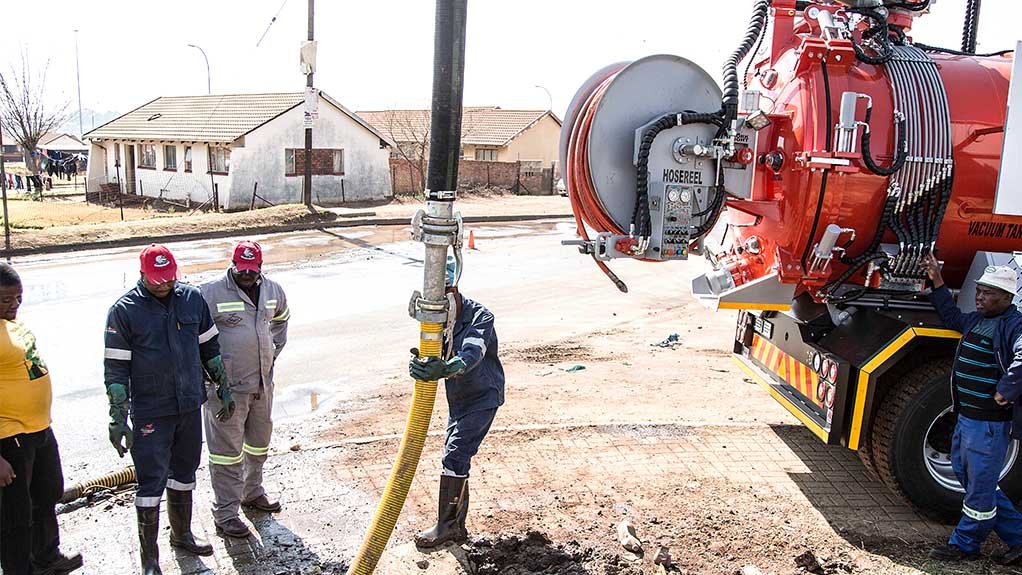Local pumps manufacturer Werner Pumps is poised to assist with service delivery solutions for wastewater and sewerage system maintenance and repairs, says Werner Pumps MD Sebastian Werner.
He attributes this “call to action” to an increased focus on service delivery which has been brought to the fore subsequent to the local government elections, held in November, which saw new municipal leaders step into office.
Werner Pumps stocks a range of specialised hose nozzles designed to help unblock clogged sewerage lines.
“We partner with water jet solutions provider Enz Technik to supply Swiss-manufactured nozzle solutions, including the Enz Golden Jet rotating nozzle – known as the Rotopuls nozzle,” explains Werner.
“One of the biggest problems that local municipalities have when it comes to their water and sewerage lines is that they get blocked by tree roots, rocks, and even cement.
The Rotopuls nozzle has an eccentrically supported rotor, which produces very fast vibrations and pulsating jets.
The resulting pulsations are strong enough to disintegrate deposits up to 10 cm thick.
By using the Rotopuls nozzle, contractors can often unblock lines without having to do more expensive, unsafe and labour-intensive work with cutting tools,” he adds.
For applications where even the Rotopuls is not strong enough, Werner Pumps recommends a chain flail head.
These nozzles are used to clear calcareous layers, concrete residues and larger roots.
“The other big development we think can help to improve the water management aspect of service delivery in South Africa is the introduction of water recycling jetting and vacuuming units,” says Werner.
“We are cautiously optimistic that these are the future of municipal sewage and wastewater woes as they have so many benefits, including a cost saving over the long term.”
He points out that radiational truck-mounted jetting and vacuuming units only need to travel to a site filled with clean or potable water, the water recycling units can arrive empty, vacuum up the contaminated water and separate out the solids, recycling the remaining water to be able to keep pumping and jetting.
The traditional trucks, on the other hand, need to be emptied, refilled and then to start over again.
“What this means is that once the truck has reached its capacity, the operators need to offload the contaminated water before continuing with the job,” Werner says.
He adds that the company often sees units dump its load illegally to save time and fuel travelling to and from the site, which is a health and safety hazard.
“The recycling unit can use the same water over and over, saving on time and travel, which also saves on fuel and therefore carbon emissions, as well as potable water use,” he stresses.
Notably, as South Africa is a water scarce country and with carbon tax becoming a reality for many larger organisations, Werner foresees these recycling units becoming the norm.
He says that because the units can vacuum and jet at one time, in many repair situations, the operator can vacuum from a blocked manhole, run the water through the truck and deposit the water with the solids removed into the next manhole, clearing lines more safely and efficiently.
“Instead of sending guys into the lines to manually clear them, which is hazardous to their health and unsafe, the machine can do the hard work, meaning a quicker fix, less risk and fewer man hours wasted for operators, all of which improves service delivery,” he concludes.
Edited by: Zandile Mavuso
Creamer Media Senior Deputy Editor: Features
EMAIL THIS ARTICLE SAVE THIS ARTICLE
ARTICLE ENQUIRY
To subscribe email subscriptions@creamermedia.co.za or click here
To advertise email advertising@creamermedia.co.za or click here













